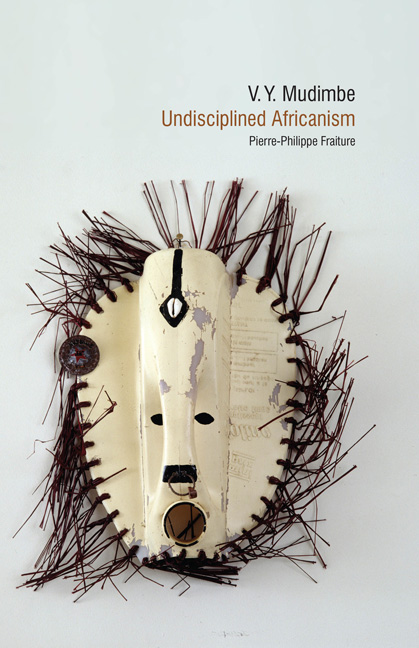Book contents
- Frontmatter
- Dedication
- Contents
- Acknowledgements
- List of Abbreviations
- Introduction: ‘Multidirectional Memory’
- 1 ‘Mission Impossible?’
- 2 ‘The Invention of Otherness’
- 3 ‘The West or the Rest?’
- 4 ‘Changing Places’
- 5 ‘Independences?’
- Conclusion: ‘The Return of the Unhomely Scholar’
- Notes
- Select Bibliography
- Index
2 - ‘The Invention of Otherness’
- Frontmatter
- Dedication
- Contents
- Acknowledgements
- List of Abbreviations
- Introduction: ‘Multidirectional Memory’
- 1 ‘Mission Impossible?’
- 2 ‘The Invention of Otherness’
- 3 ‘The West or the Rest?’
- 4 ‘Changing Places’
- 5 ‘Independences?’
- Conclusion: ‘The Return of the Unhomely Scholar’
- Notes
- Select Bibliography
- Index
Summary
Quand une communauté se bat pour sauver sa peau – mur, mosquée ou tombeau de l'ancêtre – elle ne lésine pas sur les moyens: la lutte est à mort, car l'enjeu n'est plus ce qu'elle a mais ce qu'elle est.
Régis DebrayThis chapter will explore Mudimbe's literary and scholarly activities in the early 1970s in Congo-Zaire and pay particular attention to the hitherto little-studied collection of essays, Autour de la ‘Nation’ (1972), in which the author reflects on the newly introduced ideology of Zairianisation, a process whereby the former name of the country was changed to Zaire in the wake of the Mobutu-led politics of authenticity. In the maturation of the author, and in the process that eventually led to his international recognition and prominence, this period is of the utmost significance. In many ways, the corpus that resulted from this very prolific decade provided a basis and a blueprint for future intellectual endeavours, and for the conceptualization of ideas that would be developed, nuanced, and reinterpreted later. The term ‘reinterpretation’, as will be discussed here, reflects one of the core aspects of his work, that is, its open-endedness and ability to approach reading and exegesis as a dynamic and unfinishable process. One thing is certain: his work will remain unfinished precisely because this unfinishability is at the very heart of his writing project. The word ‘polymath’ also springs to mind as this corpus comprises poetry, novels, prefaces and forewords, academic essays, and policy-making reports disseminated in a great variety of journals in Zaire and elsewhere, as well as collections of essays, the two most outstanding ones being L'Autre Face du royaume and L'Odeur du pere : the latter text, although it came out in 1982 after he moved permanently to the United States to take up his first (American) professorial position at Haverford College, belongs to the Zairian decade.
Zairianisation
Zairian culture during the 1970s was deeply paradoxical: the country was run by a totalitarian regime, which not only controlled cultural productions but also attempted to promote the idea of an authentic national culture, and yet it was at its most creative and prolific during this period, notably in the fields of music, dance, and literature.
- Type
- Chapter
- Information
- V. Y. MudimbeUndisciplined Africanism, pp. 50 - 78Publisher: Liverpool University PressPrint publication year: 2013



